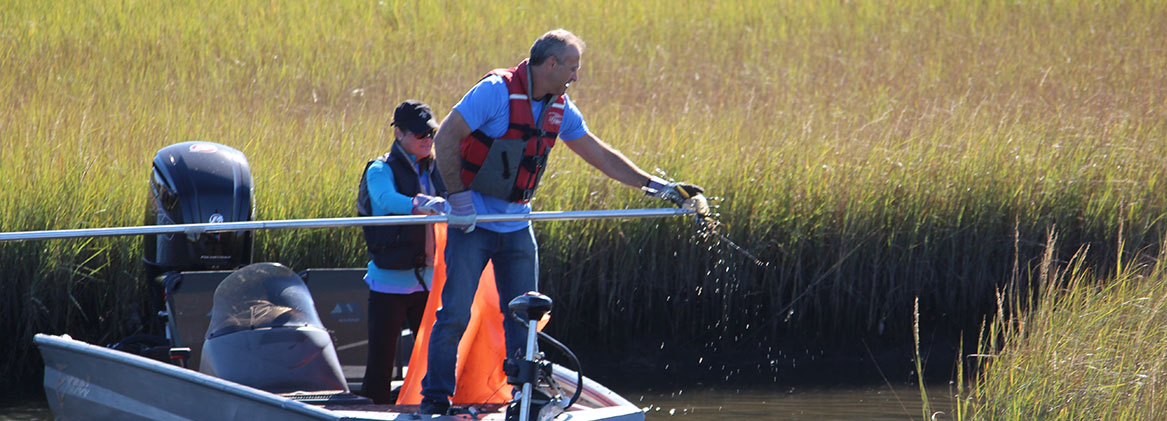maintaining clean water
protecting our water

water treatment and testing
Water used in Chevron Pascagoula Refinery’s processes undergoes extensive treatment before being discharged from our Outfall Canal to the Mississippi Sound. In 2009, the Pascagoula Refinery completed construction of a new Effluent Treatment Plant. This state-of-the-art facility has demonstrated superior efficiency in removing water contaminants.
Water treatment begins at the Oil-Water Separators, where oil is removed from process water and recycled back into the refinery for processing. Process water is then routed through our robust treatment system, including activated sludge units (bio-reactors) where microorganisms feed on contaminants in the water. The water is tested to ensure it meets or exceeds parameters established by Mississippi Department of Environmental Quality and the Environmental Protection Agency.
More than 300 samples are collected and analyzed weekly to help operate the Effluent Treatment Plant. These results are used in conjunction with numerous online analyzers to continuously monitor and maximize treatment. Alert points notify Chevron personnel to take action before abnormal conditions can negatively affect water quality. This extensive analysis ensures all treated water meets environmental requirements and will not harm marine life.
stormwater & groundwater
The refinery’s stormwater system provides treatment of stormwater that falls within our process units. This collected stormwater is routed through pipes and tanks, rather than through earthen ditches, to the Effluent Treatment Plant. Stormwater discharged from the Refinery’s permitted outfalls is sampled and inspected prior to being discharged, meeting the Mississippi Department of Environmental Quality water permit requirements.
To ensure groundwater protection, we routinely monitor 14 wells located around the refinery and report these results to the Mississippi Department of Environmental Quality and 137 groundwater wells for EPA. We also routinely monitor drinking water from our wells and report the findings to the Mississippi Department of Health.
